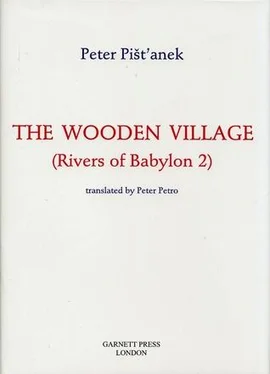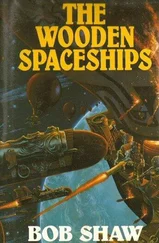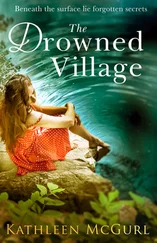Peter Pišťanek - The Wooden Village
Здесь есть возможность читать онлайн «Peter Pišťanek - The Wooden Village» весь текст электронной книги совершенно бесплатно (целиком полную версию без сокращений). В некоторых случаях можно слушать аудио, скачать через торрент в формате fb2 и присутствует краткое содержание. Год выпуска: 2008, Издательство: Garnett Press, Жанр: Современная проза, на английском языке. Описание произведения, (предисловие) а так же отзывы посетителей доступны на портале библиотеки ЛибКат.
- Название:The Wooden Village
- Автор:
- Издательство:Garnett Press
- Жанр:
- Год:2008
- ISBN:нет данных
- Рейтинг книги:3 / 5. Голосов: 1
-
Избранное:Добавить в избранное
- Отзывы:
-
Ваша оценка:
- 60
- 1
- 2
- 3
- 4
- 5
The Wooden Village: краткое содержание, описание и аннотация
Предлагаем к чтению аннотацию, описание, краткое содержание или предисловие (зависит от того, что написал сам автор книги «The Wooden Village»). Если вы не нашли необходимую информацию о книге — напишите в комментариях, мы постараемся отыскать её.
The Wooden Village — читать онлайн бесплатно полную книгу (весь текст) целиком
Ниже представлен текст книги, разбитый по страницам. Система сохранения места последней прочитанной страницы, позволяет с удобством читать онлайн бесплатно книгу «The Wooden Village», без необходимости каждый раз заново искать на чём Вы остановились. Поставьте закладку, и сможете в любой момент перейти на страницу, на которой закончили чтение.
Интервал:
Закладка:
However, he began to practise regularly what Tera had taught him in the shower in the communal building and is still doing it to this day.
* * *
The days when Four-Eyes is on duty in the snack bar are for Feri Bartaloš and Eržika rest-days. They have nothing to do, so they spend the whole day sitting in the snack bar. They know lots of people.
Early in the morning the slamming of lavatory doors wakes up Feri Bartaloš and Eržika. “Wake-up call!” hollers Four-Eyes through the door. “Wake up, parasites!” Four-Eyes adds without a grain of humour.
The morning calm is immediately ruined. Feri and Eržika jump out of their makeshift beds. While Feri washes, Eržika puts the beds away in the unused rear cubicle.
When they come out, Four-Eyes’s wife is already sitting in front of the toilet. She eyes them like a madwoman; they hate each other. “The people who sleep in the lavatory,” is how Four-Eyes’s wife refers to Feri and Eržika.
However, Feri and Eržika are smiling today. They have tons of money and will not have to eat those typhoid-infected fake sausages; they can even afford trout. Their heads held proudly high, Feri and Eržika sit down on a bench like a king and queen. With vague benevolent smiles, they observe what is going on inside the snack bar hut. They feel on top of the world.
The day has hardly begun, but behind the window the busy figures of the snack bar staff are moving briskly. The barman is tapping a new barrel of Bratislava beer; he managed to finish the old one yesterday, even though he had to shut up shop a quarter of an hour late. The cooks are now frying pork schnitzels. Fake sausages are roasting on the grill. Another cook is sliding larded chickens onto a rotisserie spit. Impatient beer drinkers are already gathering in front of the window where the crap beer is served. They are mostly stokers from the nearby buildings, among them the gypsy Šípoš: this time he’s brought his colleague Berki with him. They are decent gypsies, hard-working ones. Berki even goes to school in the evenings, I believe.
Feri says a few words to Eržika, gets up and goes to the bar. The queue is moving; beer is being sold. When it’s Feri’s turn, he doesn’t order beer, but asks for two coffees with rum, and for several kinds of chocolate wafer, too. That’s what rich people have for breakfast.
Four-Eyes observes Feri and Eržika mistrustfully. His white coat makes him stand out in the Wooden Village. But he can’t do a thing. Feri and Eržika are as much a part of the snack bar as he is.
After a good breakfast, Feri gets up to have a word with Freddy Piggybank.
* * *
As a child, Freddy Piggybank saved up to buy a rubber boat. That was his life’s dream. The idea of navigating the clay-pit lake, in relative safety and staying dry, so as to watch the water creatures, almost made him dizzy. That was why, when he saw the rubber boat in the Magnet mail-order catalogue, he began saving up for it. When he had saved up the sum required, his parents broke his piggybank and, instead of the rubber boat, bought him a suit for his First Communion.
Freddy raged like a madman. In floods of tears, he roared in a tantrum. A vein burst in his head and from then on he began to put on weight and lurch into periodical fits of rage. He also became a little backward; blood leaked into his brain and affected some glands, or cells, or something like that. His wise adult eyes were buried under an inch-thick layer of fat.
He used to play with friends and, even though he wasn’t much liked because of his obesity and the clumsiness that went with it, they still accepted him as an equal. Freddy was happy. Boys and girls played games of Red Indians and soldiers and went on long rambles round the brickyard settlement. Afterwards, more and more of his friends started to ride bicycles. The radius of their activity grew considerably. Suddenly, they could easily get to Vápenka or Polimlyn in a few minutes. Mysterious adventurous expeditions extended to the distant surroundings of the village. The original group split into two. One half owned bicycles, the other didn’t. Those with bicycles rode to Devín, Devín Lake and Stupava. It only took them a while. Those without bicycles continued to play in the clay-pit and near the settlement. Their numbers diminished. They gradually got bicycles and moved into the cyclists’ gang.
One day Freddy Piggybank found himself the last person without a bicycle. He came out of the house and watched all the others getting ready for some new exciting trip to the woods behind the Devín Lake. Nobody paid any attention to Freddy Piggybank, who was more excited about the trip than any of the others.
As far as he could, Freddy ran after them. He longed for friendship and adventure so much that he managed to run for a long time. However, when the bikers gained so much speed on the dusty road along the railway track that they looked like mere pinheads, Freddy, worn out, the veins in his brain pulsating wildly, stopped. It took him a long time to catch his breath on the strip of land separating the track from the field, but then he decided to keep moving and to find his friends in the woods behind Devín Lake and take part in their games.
After an exhausting trek he arrived in the woods, all dusty and sweaty, with thorns sticking in his body. He walked through the trees, looked all round and shouted his friends’ names. Nobody shouted back. The woods responded with a mysterious rustling silence. Suddenly Freddy thought he heard far-off children’s laughter filtering through the barrier of greenery. He was so worked up that he had a stitch in his groin. His heart beating fast, he ran in that direction, but found nobody. It took a long time for him to turn back, disillusioned and frustrated.
It was almost evening when he got back to the brickyard settlement. Outside the buildings was a pleasant smell of simple but delicious food cooking. The children in his gang had come back a long time ago. They were sitting in front of an apartment building, smelling of the campfire that they had lit in the forest behind Devín Lake. They talked excitedly all at once about the new adventures they had had. Freddy realised that his friends, without whom he couldn’t live, had become estranged from him. If he didn’t get a bike, he would be lost.
He found a frame in the attic, but the other components were harder to get. After the incident with the rubber boat and his fit, his parents had, as a precaution, stopped giving him pocket money, so he had no way of buying the wheels, chain, or brakes. He depended on presents. That was why it took him an interminable time to build an entire bicycle. It took him practically the rest of his childhood. As he lay in his bed with his eyes shut, he could clearly see himself one day hopping on his bike and joining his friends as a regular member of the gang. His desire for a vehicle was painful. If he’d wanted, his hand could have touched that desire in the middle of his chest. He often dreamed that everyone was off somewhere and he was rooted to the ground and couldn’t follow them.
Freddy’s parents noticed their son was spending entire days in the tool shed, working on something. They were glad that he was showing technical inclinations and decided to enrol him in secondary technical school. The truth was completely different: Freddy Piggybank had no technical inclination and passionately hated his endless work on the bicycle. Only one aim existed for him: to ride a bicycle with the others. If he could have bought one, he would have never picked up a screwdriver.
Obsessed with finishing his bicycle, he didn’t even notice that times had changed. The gang broke up. The girls became young women and stopped being interested in military-type adventures. The members of the bicycle gang would gather behind the football stadium to smoke their first cigarettes and drink a first bottle of beer. Freddy Piggybank didn’t notice: he was stuck at home, or hunting for components, or building his bike. Time passed him by without his noticing, and when he emerged with his new bicycle, the children outside were completely different.
Читать дальшеИнтервал:
Закладка:
Похожие книги на «The Wooden Village»
Представляем Вашему вниманию похожие книги на «The Wooden Village» списком для выбора. Мы отобрали схожую по названию и смыслу литературу в надежде предоставить читателям больше вариантов отыскать новые, интересные, ещё непрочитанные произведения.
Обсуждение, отзывы о книге «The Wooden Village» и просто собственные мнения читателей. Оставьте ваши комментарии, напишите, что Вы думаете о произведении, его смысле или главных героях. Укажите что конкретно понравилось, а что нет, и почему Вы так считаете.












